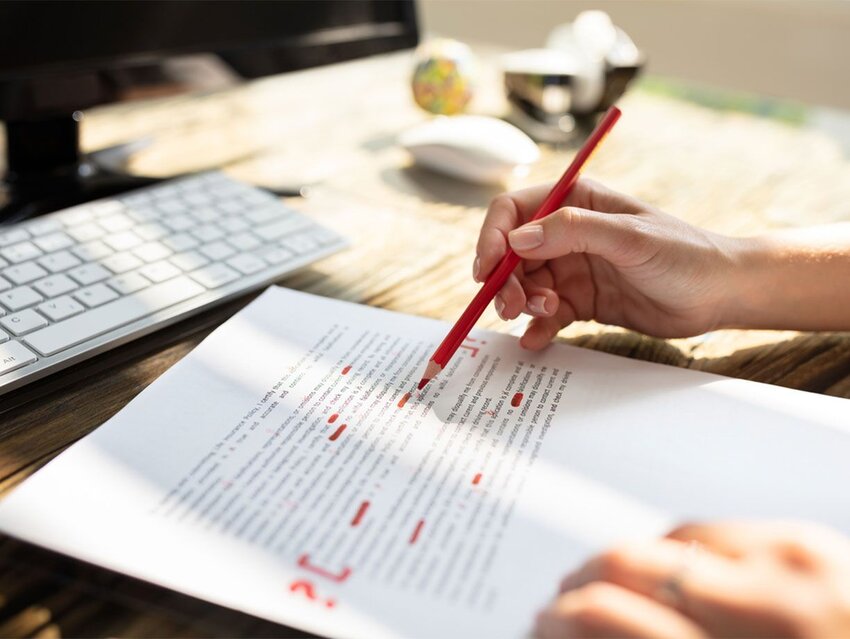A hyphen is an essential punctuation mark used to join words and show they have a combined meaning. Hyphens are the glue that hold words together, and like glue, they can get a little messy. It can be tricky to know when to use a hyphen and when to just leave a space. Let’s take a look at when to employ this tiny, but mighty, punctuation mark.
Compound Words
When two or more individual words come together to form a new word, they create a compound word. Think “basket” and “ball” or “out” and “side.” Some compound words form a single word (also known as a closed compound) like “skateboard” and “railroad.” Others are used together but stay separated by a single space, like “full moon” or “peanut butter.”
Because language is constantly evolving, some compound words were once hyphenated but have become closed over the years — like “teenager” and “email.” There’s not a hard and fast rule about which words use a hyphen, but the dictionary is the best tool to reference if you aren’t sure.
Compound Modifiers
What happens when a writer creates a new combination of adjectives? It might be time to add a hyphen. If the two adjectives come before a noun and work together to describe the noun, that’s called a compound modifier. The hyphen serves to clarify that the two adjectives are combined to describe the following noun.
Example:
I love eating chocolate-covered strawberries.
The city has lots of small-town charm.
If there’s an adverb that ends in an “-ly,” the hyphen is not needed, because the suffix is doing the work to clarify that something is being modified.
Example:
Call a plumber for the slowly draining sink.
I couldn’t hear the softly playing music.
Numbers
The rules of math are usually not up for debate, except when talking about the language of math. Different style guides offer rules on when to spell out numbers and when to use numerals. (For example, in AP Style, numbers one through nine are spelled out, and the numbers 10 and above use numerals.) However, when spelling out numbers, questions about hyphens often arise. A general guideline is to hyphenate the words for numbers 21 through 99.
That means someone could own “twenty-nine kittens” and “party like it’s nineteen ninety-nine” while buying “one hundred balloons.”
While we’re on the subject of math class, hyphenate all spelled-out fractions. For example, “Three-quarters of the students ordered yearbooks.” The exception to the rule: Don’t hyphenate when fractions are introduced with “a” or “an” — “only a fourth of voters supported the mayor.”
Ages
Getting older isn’t easy, and neither is figuring out how to hyphenate ages. The basic rule of thumb is to hyphenate if the age is used as an adjective before the noun (turning it into a compound modifier).
Example:
Meet my seven-year-old daughter.
My daughter is seven years old.
Prefixes
A prefix is just a short word placed in front of a long stem word. In fact, even the word “prefix” has a prefix in it — “pre,” which means “before.”
Sometimes the prefix has become so widely accepted that it’s just a compound word: unhappy, prehistoric, exoskeleton. But if the word is a newer creation, there are double vowels, or it appears before a proper noun, a hyphen is needed.
Example:
The art was pre-Christian.
It’s the pre-eminent music club in the city.
The party is in mid-September.
A hyphen after a prefix can also add clarity. A reader might be confused by, “I recovered the sofa.” Did the subject regain possession of the furniture? Or restore the fabric cushions? In this case, using the hyphenated “re-cover” would make it clear that someone updated the upholstery to a more fashionable pattern.
Featured photo credit: AndreyPopov/ iStock

